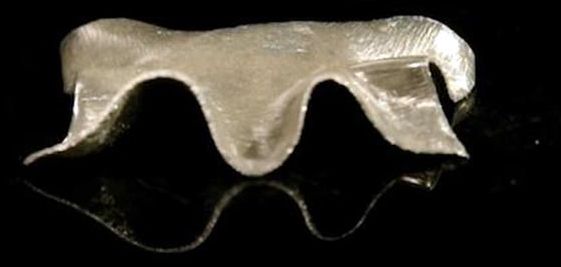Advances in the fields of soft robotics, wearable technologies, and human/machine interfaces require a new class of stretchable materials that can change shape adaptively while relying only on portable electronics for power. Researchers at Carnegie Mellon University have developed such a material that exhibits a unique combination of high electrical and thermal conductivity with actuation capabilities that are unlike any other soft composite.
In findings published in Proceedings of the National Academy of Sciences this week, the researchers report on this intelligent new material that can adapt its shape in response to its environment. The paper is titled “A multifunctional shape-morphing elastomer with liquid metal inclusions.”
“It is not only thermally and electrically conductive, it is also intelligent,” said Carmel Majidi, an associate professor of mechanical engineering who directs the Soft Machines Lab at Carnegie Mellon. “Just like a human recoils when touching something hot or sharp, the material senses, processes, and responds to its environment without any external hardware. Because it has neural-like electrical pathways, it is one step closer to artificial nervous tissue.”
